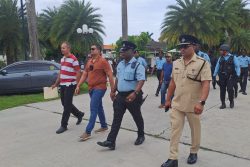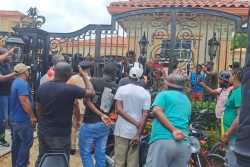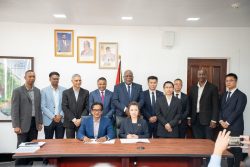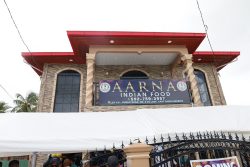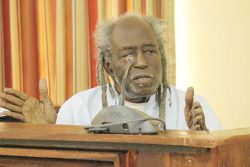ABIDJAN (Reuters) – Presidential claimant Alassane Ouattara rejected UN charges that his forces massacred hundreds of civilians in the west of Ivory Coast as fighting raged in Abidjan to dislodge incumbent Laurent Gbagbo.
The United Nations mission in Ivory Coast (ONUCI) said yesterday that traditional hunters known as Dozos joined Ouattara’s forces in killing 330 people in the western town of Duekoue.
Troops loyal to Ouattara launched an offensive early this week to oust Gbagbo who has refused to cede power after losing a UN certified election to Ouattara.
France said its forces took over Abidjan airport to facilitate the evacuation of foreigners and sent an additional 300 troops to Ivory Coast, bringing its total deployment to 1,500.
The International Committee of the Red Cross said yesterday that at least 800 people were killed in intercommunal violence in Duekoue this week.
It is not clear whether the 330 counted by ONUCI is included in that figure.
UN Secretary-General Ban Ki-moon said he was “concerned and alarmed” about reports that pro-Ouattara forces may have killed civilians in a conversation late yesterday with Ouattara, who told him his forces were not involved in the Duekoue killings.
Guillaume Ngefa, the deputy head of the human rights division of UNOCI speaking on France24 television, blamed pro-Ouattara forces for 220 of the deaths between Monday and Wednesday.
He said pro-Gbagbo militia fighters killed over 110.
“The government (Ouattara’s) notes with regret that the allegations of the deputy chief of ONUCI human rights division are not supported by any evidence after its preliminary investigation,” Ouattara’s government said in a statement.
It also denied that Dozos were part of its forces and invited international human rights organisations to investigate the killings and rights violations.
French troops
After swiftly taking control of swathes of the country, pro-Ouattara forces have met fierce resistance over the past three days.
Troops loyal to Gbagbo have held on to positions around the presidential palace in Abidjan, Gbagbo’s residence and the state television.
At Abidjan airport, a security source said he saw French forces bringing in reinforcements. “There were seven big planes and I counted 50 armoured vehicles,” he said.
In Paris, armed forces spokesman Colonel Thierry Burkhard said that by taking over the airport, France had “control over the airspace (which) allows those who wish to leave the country to do so.”
Around 1,600 foreigners, of whom about half are French, have taken refuge at a French military camp close to the airport.
“Currently, the threat to security stems from the fact that there are nearly no policemen or security forces in the streets (of Abidjan) who were previously under the orders of Mr Gbagbo,” Burkhard said.
After a day and night of intense fighting in Abidjan, Reuters correspondents and witnesses reported sporadic gunfire and explosions around the central business district.
“There was an attack planned on the presidential residence, but it didn’t happen, possibly because of the human shield (Young Patriots) around it,” a Western diplomat said.
“But it seems to have started up again. I’m hearing some booms from the direction of RTI (state television),” the diplomat added.
The fighting has brought the number of people killed since the post-election violence began in November to over 1,300.
Catholic charity Caritas said in a statement that teams visiting Duekoue reported that a thousand people have been killed or “disappeared”.
